Dental Implants – Austin, TX
Unmatched Stability & Strength
Are you looking for a strong and stable tooth replacement option that you can rely on? Dental implants in Austin are a modern, comprehensive treatment that rebuilds the entire structure of missing teeth from the roots upward. That way, you don’t have to worry about slipping or failing prosthetics. To learn whether you’re a good candidate for this procedure, contact our dental office to schedule a consultation to learn your options for tooth replacement with dental implants in Austin, TX!
Why Choose Magnolia Family Dentistry of Austin for Dental Implants?
- In-House Placement & Restoration
- Experienced & Friendly Dental Team
- Highest-Quality Dental Materials
What Are Dental Implants?

Dental implants themselves are small, titanium posts that are surgically placed below the gum line and into the jawbone to restore the root structure of missing teeth. Due to their biocompatible nature, they’re able to fuse with the bone during a process called osseointegration. This provides the rest of the restoration with a strong foundation to be attached to, eliminating any need to alter surrounding teeth while preventing slipping or shifting prosthetics.
The Dental Implant Process
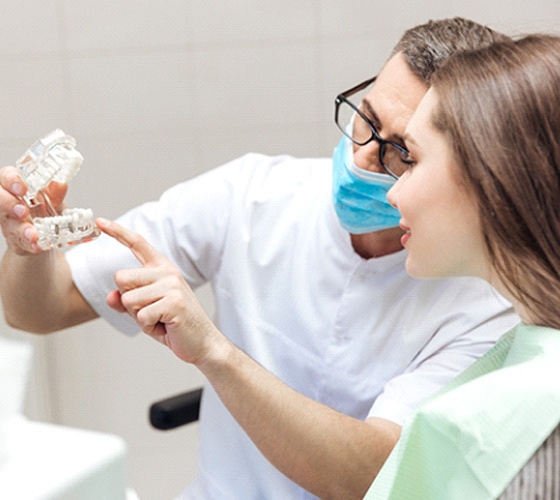
Replacing teeth with dental implants doesn’t occur in a single appointment. Instead, it happens in phases, each of which play an incredibly important process for the long-term health of your new smile. We can walk you through every step of the implant process to ensure it is seamless. Read on to learn more about the individual phases of treatment.
Initial Dental Implant Consultation
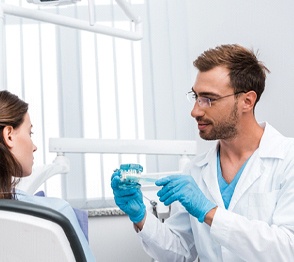
The initial consultation will consist of a thorough examination of your mouth, including X-rays. Dr. Burton will discuss your medical history with you as well as your goals before putting together a detailed treatment plan so you know what to expect from the process. She’ll also take this opportunity to confirm that you are eligible to receive dental implants in the first place. For example, some patients may need to have bone grafts, gum disease therapy, or tooth extractions performed before a dental implant can be placed with confidence. If Dr. Burton determines you are able to receive a dental implant, she’ll schedule you for surgery.
Dental Implant Surgery
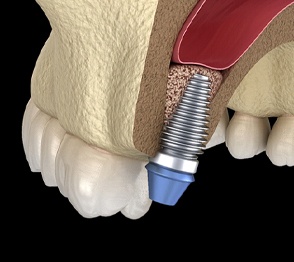
Dr. Burton has the training and expertise to perform the implant placement surgery right here in our practice. When you arrive, she will make sure that your mouth is fully numbed ahead of your treatment. This involves administering local anesthetic to remove any sensations that could be felt during surgery. We will also provide sedation dentistry if requested at this time.
During surgery, a small incision is made in the gum tissue. Then, a tiny hole is created so the implant can be placed. After attaching the implant, the gums are stitched closed so the implant can start to heal and slowly integrate.
Dental Implant Osseointegration & Abutment
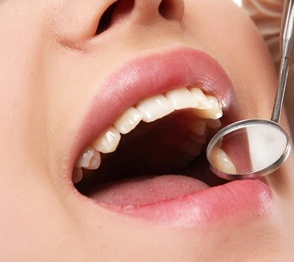
Once your implants are placed, they’ll fuse with the jawbone through a process called osseointegration. This process takes about four to six months to complete. At your follow-up visit, we will capture X-rays and examine your implant to confirm that it has fully integrated, then attach small metal connector pieces called abutments to your implants. These are designed to keep the permanent restoration stable, ensuring it does not become loose or shift out of place while in use.
Delivery of Dental Implant Restoration(s)
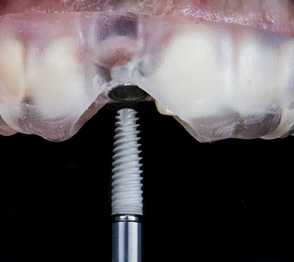
Once your final restoration has been crafted by our dental laboratory, we’ll call you back into our dental office to attach the prosthetic to the abutments. Whether you need to have a dental crown, bridge, or denture attached, you can expect it to be incredibly natural-looking and long-lasting, given that you practice oral hygiene every day and stay on top of your routine dental exams and cleanings.
Benefits of Dental Implants

Dental implants have a variety of unique benefits that make them a preferred restorative treatment among many patients, especially compared to more traditional solutions like standard bridges and dentures. Not only are you gaining the esthetic benefits of a complete smile, but the oral health benefits that come with replacing the entire tooth. Read on to learn more about the day-to-day and long-term benefits you can expect after your dental implants are placed and healed!
Day-to-Day Benefits

- Enjoy Your Favorite Foods – Breaking down tough and crunchy foods is not only possible, but feels natural with dental implants. Even tough options like steak, apples, nuts, and other foods are easy to enjoy, whether you’re replacing one tooth or all the teeth in your mouth.
- Easy Maintenance At Home – Brushing and flossing your dental implants is simple, straightforward, and natural-feeling, just like cleaning your real teeth. No longer do you need to remove a dedicated denture just to keep your mouth free of harmful plaque and food debris.
- Improved Speech and Confidence – Being able to smile with confidence is one thing, but many people don’t realize how much they rely on their teeth to speak until they lose them. Dental implants are secured tightly in place, meaning you can speak with loved ones without worry of your tooth replacement falling out.
Health Benefits

- Preservation of Jawbone Structure – Dental implant posts are made from strong titanium and fuse with the jawbone to remain secure in the mouth for decades at a time. This prevents changes in your overall bone structure and gives your jaw the strength it needs to eat the foods you enjoy.
- Easier Nutrition – When you don’t have many teeth or wear a denture, you’re generally limited from eating certain foods because you won’t be able to break them down safely. Dental implants ensure that incorporating fruits, vegetables, proteins, and other foods into your diet is seamless.
- Protect Existing Teeth – The more teeth you lose, the more your jawbone tissue begins to break down, putting other teeth at risk of falling out as well. Dental implants stimulate bone tissue to ensure it does not deteriorate over time. This is just another reason why dentists often tell patients to get teeth replaced sooner rather than later.
Long-Term Benefits
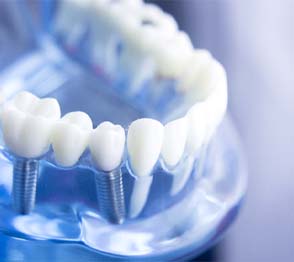
- Keep a Youthful Appearance – Preserving your smile is only the beginning when it comes to the esthetic benefits of dental implants. After a dental implant is placed, blood flow to the face improves dramatically. This prevents issues like facial sagging and hollowing of the cheeks, both of which make you look older than you actually are.
- Lifespan of 35+ Years – Dental implants are the only tooth replacement option that can last for several decades (and even a lifetime) after placement. This cannot be said for other options that don’t use implant posts to replace teeth, including standard bridges and dentures.
- Proven Safety and Reliability – When placed by a professional, dental implants hold an average success rate of 95%. In other cases, it can be as high as 98%, making them an extremely reliable and safe option for replacing teeth.
Who Dental Implants Can Help

As you learn more and more about all of the benefits that dental implants near South Austin have to offer, you’re likely to begin wondering whether they’re the best fit for your smile. We can help you find out if you call our office and schedule a dental implant consultation. Once we’ve examined your mouth, we can figure out if you’re able to have dental implants placed, and we can determine what type of implant treatment is best for helping you enjoy a complete smile again.
Who Is a Good Candidate for Dental Implants?

Most adults can get dental implants as long as they meet the following criteria:
- Being healthy enough to have minor oral surgery done without problems.
- Having a mouth that is free of gum disease and cavities.
- Having a strong jaw with high enough levels of bone density.
Don’t worry if you don’t currently meet these requirements. Certain preliminary procedures can be used to address problems that would otherwise prevent you from receiving dental implants. For example, a lack of bone density can be corrected with bone grafting, and gum disease can be treated with scaling and root planing.
Missing One Tooth

Accidents and untreated cavities can sometimes leave you with a single missing tooth. To replace it, an implant post can be inserted into the space where it used to be. After osseointegration, the post can be restored with a dental crown.
Generally speaking, the crowns for single dental implants are made out of ceramic materials, which makes them very natural-looking. As a result, it will be very hard to tell just by looking at your smile that a tooth was lost to begin with.
Missing Multiple Teeth

Sometimes a gap in your grin is the result of multiple teeth being knocked out or needing to be extracted. In order to replace all of these teeth at once, two dental implants can be inserted into the jaw. Then a dental bridge is anchored to the implant posts to completely fill in the space.
It’s also possible to fill in multiple gaps with dental implants and a partial denture. The exact number of implant posts required depends on how many teeth are missing.
Missing All Teeth
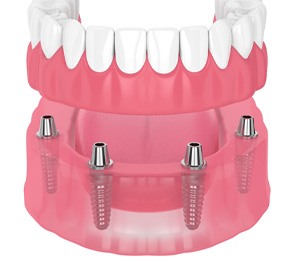
Full dentures and dental implants can be combined to completely restore an arch of missing teeth. About 4 to 6 implant posts will be inserted into your jaw, and the denture will be attached once your mouth has sufficiently healed.
Implant dentures are known to last longer than traditional dentures, and they also make it easier to enjoy tough, chewy foods. Oftentimes, implant dentures are designed to be permanently fixed in the mouth, which makes taking care of them much more convenient. (That said, removable implant dentures may be recommended based on your preferences or the level of bone density in your jaw.)
Learn More About Implant Dentures Learn More About All-On-4 Dental Implants
Understanding the Cost of Dental Implants

The dental implant procedure is custom-tailored to each patient’s unique needs, which is why there’s no set price tag attached to it. During your initial consultation, we’ll speak with you about your budget and walk you through some cost-determining factors of your treatment, like how many dental implants you need to have placed. We’re happy to file insurance claims on our patients’ behalf to help them maximize their benefits as well. Below are some factors to keep in mind when considering the overall cost of dental implants in Austin.
Preliminary Treatments & Dental Implant Surgery

Depending on your unique circumstance, you may need to undergo some preliminary treatments before you can get dental implants. Gum disease treatment, bone graft procedures, and tooth extractions contribute to overall costs but are critical to ensuring successful implant treatment.
The implant surgery, which typically involves anesthesia, also incurs its own cost. Because Dr. Burton does the procedure herself, you'll spend less versus having to visit an outside specialist.
The Parts of Your Dental Implant

The overall cost of dental implants in Austin is affected by:
- Number of Implants : Replacing a single tooth with one implant will cost less than replacing an entire arch, which usually requires four or more implants.
- Type of Restoration : Crowns, bridges, and dentures all have different costs; smaller restorations typically cost less.
- Material : Implants are often made out of titanium or zirconia; which material is used affects the overall cost.
- Brand : Just like cars, dental implants from certain manufacturers are higher quality than others. Feel free to ask about where we’re getting your implant as well as any brand specific benefits.
How Dental Implants Can Save You Money

While dental implants in Austin may have a higher upfront cost, they can actually save you money in the long run. With proper care, dental implants can easily last for decades or even the rest of your life! If you choose traditional dentures or bridges instead of implants, you will have to pay for replacements every 5 to 10 years. Dental implants are also easy to clean, which can help you avoid oral health issues that may end up requiring costly treatment.
Does My Dental Insurance Cover Dental Implants?

While most dental insurance plans do not cover dental implants, there are some exceptions. For instance, your insurance may partially cover any preliminary treatments, such as gum disease therapy or tooth extractions. Your insurance may also help reduce the cost of the restoration that attaches to your implant. Before committing to implant treatment, be sure to confirm your coverage with your insurance provider. Our team will be happy to review the details of your insurance plan to make sure you are maximizing your benefits !
Making Dental Implants Affordable

At Magnolia Family Dentistry of Austin, we believe everyone deserves to have a complete smile and the confidence that comes with it. That is why we are currently offering a promotion for dental implants for as low as $329 per month! Visit the promotions page on our website to redeem this amazing offer.
Qualified patients can also access convenient dental financing through CareCredit. A trusted partner, CareCredit gives you the option to break up the cost of dental implant treatment into small, monthly payments based on your budget. Most CareCredit plans feature little to no interest, enabling you to rebuild your smile without breaking the bank.
Dental Implant Post-Op Instructions
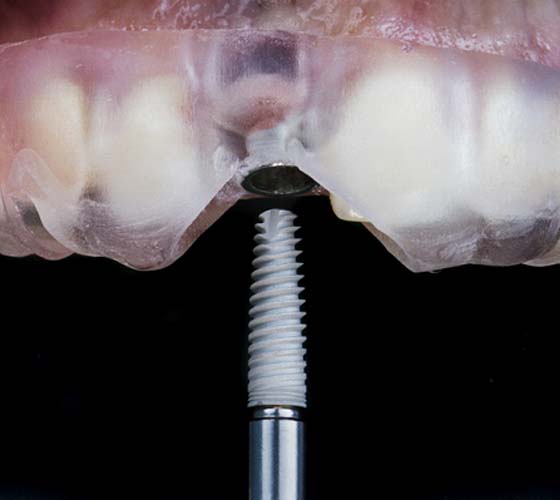
Just like with any oral surgery, it’s important to follow strict post-op instructions to ensure the fastest healing process possible. The good news is these steps are relatively straightforward and simple to complete, meaning your post-op care should be smooth sailing as long as you keep them in mind. You’re welcome to give us a call if you have questions or concerns as well as use the reference below after you’ve completed the surgical portion of your tooth replacement.
What to Do Directly After Dental Implant Surgery

After you’ve completed your dental implant surgery, you’ve really gone through the most difficult step of the tooth replacement process. With that said, it’s vital that you give yourself time to rest and heal. Immediately after your surgery, we recommend the following:
- Get plenty of rest over the next couple of days
- Avoid strenuous activities or exercise
- Do not use straws or spit forcefully (both could potentially loosen the blood clot that’s forming over your implant site)
- Do not touch your treatment site as you heal
- Do not use tobacco under any circumstances
- Avoid consuming alcohol as it can negatively impact healing
Common Side Effects

You’ll experience a handful of common side effects following your dental implant surgery. These are normal and can be easily managed. For example:
- Light bleeding is typical and can be handled by regularly replacing your gauze pad throughout the day. The bleeding should rapidly come down over the next 24 hours after your surgery. If bleeding does not stop after 24 hours or becomes very heavy, call our office immediately.
- Facial swelling is typical and easily managed with cold compresses. This can be an ice pack or bag of ice wrapped in a towel. Apply the compress for 10 minutes at a time and remove for an additional 10 minutes. Do not keep the compress on your cheek for more than one hour at a time.
- Mild discomfort is normal after dental implant surgery and should be managed with prescription and over-the-counter medications like ibuprofen. Follow the instructions on the bottle and give us a call if you have any questions.
Diet

Stick to a soft diet to prevent accidentally removing the blood clot as it forms on your treatment area. This will also work to keep your stitches in place. Cool, soft foods like yogurt, applesauce, instant oatmeal, and similar foods are most ideal. Avoid very hot, crunchy, hard, sticky, or chewy foods that could dislodge your blood clot. You should be able to slowly resume eating regular foods after a few days of healing have occurred.
Health & Oral Hygiene

Do not skip your oral care routine just because you had oral surgery. While you can get away with skipping brushing and flossing for the first day after your implant is placed, you should resume after that. Just make sure to proceed with caution and avoid the treatment area. If you are prescribed an oral rinse to keep the area clean as you heal, make sure to follow the instructions on the bottle closely.
What to Do After Your New Teeth Are Attached

Once your permanent restoration is attached, you may notice minor sensitivity in your gum tissue. This can be easily managed with any pain medications you have left or over-the-counter options. You should not be experiencing any bleeding or swelling after your attachment is placed, so give us a call if these symptoms develop.
Dental Implant FAQs

There’s no shame in taking the time to learn more about a potential treatment before going through with it, and dental implants are no exception. While our team is confident we’ll be able to help you feel at ease ahead of your surgery, we don’t want to leave any stone unturned. Below, we’ve answered a handful of the most common questions we’ve heard over the years so you can be more informed on dental implants near South Lamar and how the process works.
How Long Do Dental Implants Last?
On average, a dental implant can last for over 30 years. However, just like with your natural teeth, this timeline can be influenced by a number of different factors. For example, how well you practice at-home oral hygiene (including brushing and flossing) will have a direct impact on the longevity of your dental implant. Furthermore, using your dental implants in ways that you shouldn’t (biting your nails, opening packages, etc.) can also negatively affect their lifespan. With that said, you can expect your dental implants to last substantially longer than other tooth replacement solutions, including dental bridges and dentures.
Are Dental Implants Safe?
Dental implants are a safe option to replace missing teeth for those with good health. Of course, they should be placed by a professional like Dr. Burton here at Magnolia Family Dentistry of Austin. Those with low jawbone density or gum disease will need to have these issues addressed with personalized treatment before they can begin dental implant placement. Not only does this make your oral surgery safer, but it ensures the dental implant has a long and healthy lifespan. If you have any preexisting conditions that affect your body’s ability to heal or receive minor surgery, including diabetes, cancer, or another condition, please let us know.
How Successful Are Dental Implants?
Dental implants hold success rates falling between 95% and 98% when placed by a well-trained professional like Dr. Burton. Depending on how well you take care of them, this success rate can fluctuate. You’ll need to practice routine care at home as well as visit our office for checkups and cleanings every six months. Success rates can also be influenced depending on where the implant is located. For example, dental implants were actually designed to replace molars initially (since they are typically the first to need extraction in adults). However, molars also tend to experience the most strain, making them more likely to fail compared to other teeth.
Will People Be Able to Tell That I Have Dental Implants?
Our office captures detailed impressions of your mouth to create the restoration that eventually attaches to your implant post. After the restoration is placed, there should be virtually no distinction between your dental implant and your neighboring natural teeth. You also won’t need to hold your restoration in an awkward way to keep them stable, an issue that’s very common for those with dentures.
Maintaining & Caring for Your Dental Implants

Getting dental implants is exciting. By caring for them properly, they can last upwards of three decades or even a lifetime. This makes them the longest-lasting tooth replacement option on the market. However, they will only last when you maintain them correctly. Here are some steps that you should be taking.
Make Oral Hygiene a Priority

Dental implants can’t get cavities like normal teeth, but you still need to practice excellent oral hygiene. In addition to keeping your surrounding teeth in good shape, sticking to an excellent oral hygiene routine can prevent other dental problems, like gum disease, that can cause your implants to fail. Remember to brush, floss, and rinse with mouthwash every day.
Eat a Healthy Diet

One of the many benefits of getting dental implants is the fact that you don’t need to worry about any eating restrictions. You can easily enjoy nutritious meals without struggling to chew. Just remember to brush, floss, and rinse with mouthwash every day.
Break Bad Habits

Refrain from smoking or using other tobacco products immediately after your dental implant placement. This can slow down healing and increase your risk of developing an infection. Don’t use your teeth as tools either. You could end up accidentally damaging your dental implants or surrounding teeth. Instead, try to find some scissors, pliers, a bottle opener, or another tool that can help you complete your task safely.
Protect Your Dental Implants

Your dental implants may be strong, but they aren’t completely indestructible. You should always wear a mouthguard to protect your dental implants and natural teeth when participating in sports. If you grind your teeth at night, ask about a nightguard to protect your implants from additional wear and tear.
Schedule Regular Dental Checkups

You should always attend regular teeth cleanings and dental checkups twice a year. This way, we can monitor your dental implants and spot any issues as early as possible. By catching potential problems now, you can keep them from becoming more serious and leading to greater complications.
